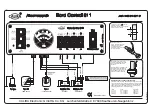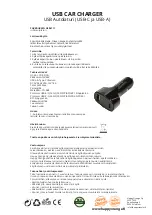
Emergency-starting and Towing the Vehicle
Towing eyes are situated under
neath the front and rear end on the
R-H side. Use a solid towing link
such as a towbar.
Tow-start vehicle only with the
battery connected.
Caution: Remember, however, that
until the engine is running, the
power steering and power brakes
do not offer assistance and con
siderable additional effort is
required to steer and stop the car.
Emergency Engine Start
(Tow-starting)
The engine must be cold if it is to
be started by towing or pushing
the vehicle.
Never start a hot engine by towing
or pushing the vehicle as the
catalysts might otherwise suffer
damage.
Move selector lever to position
“ N” , switch on ignition and then
tow-start the vehicle.
After reaching a speed of 18 mph
(30 km/h), maintain this speed for
about two minutes in order to
ensure sufficient oil pressure in the
transmission.
To start the engine, move selector
lever to “ L” . Only touch the
accelerator when the engine is
revolving. As soon as the engine
has fired, return the selector lever
to “ N” immediately.
If the engine fails to fire within
a few seconds, return the selector
lever from “ L” to “ N” as otherwise
the transmission may be damaged.
For another starting attempt, tow
car again for a short while with the
selector lever in position “ N” and
then repeat starting procedure.
The same procedure may be used
for starting the engine while rolling
downhill.
Starting the Engine with Jumper
Cable (35 mm2 Minimum Cable
Cross Section) and Auxiliary
(Booster) Battery
Switch off ignition. Connect positive
( + ) terminal of auxiliary battery to
positive terminal of car battery and
negative ( - ) terminal of the
auxiliary battery to the negative
terminal of the car battery. If the
battery of another vehicle is used,
the engine of the other car should
be run at high idle. After the
engine has started, first disconnect
the negative terminal and then
the positive terminal.
If the engine is started with
charging equipment, the battery
must be connected.
Towing a Vehicle
The vehicle may be towed with
the driving wheels on the ground
and the selector lever in position
“ N” for distances up to 75 miles
(120 km) and at a speed not to
exceed 30 mph (50 km/h).
To positively avoid a possibility
of damage to the transmission,
however, we recommend to dis
connect the drive shaft at the
rear axle drive flange on any towing
beyo,nd a short tow to a nearby
garage.
Summary of Contents for 280 CE 1979
Page 1: ......
Page 2: ......
Page 3: ......
Page 7: ......
Page 8: ...Vehicle Operation...
Page 10: ...Instruments and Controls 9...
Page 12: ...11...
Page 34: ...Driving 33...
Page 48: ...Vehicle Care 47...
Page 54: ...Practical Hints 53...
Page 69: ......
Page 70: ...Technical Data Fuels Coolants Lubricants etc...
Page 80: ......
Page 83: ......
















































